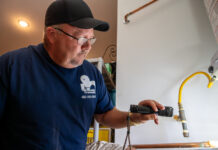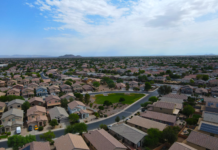Nationally, home sales declined 4.1 percent in 2006 from 2005. But vacation-home sales rose 4.7 percent in 2006 to a record 1.07 million sales, according to the National Association of Realtors® (NAR). The increased interest in buying vacation homes for personal use rather than rental is expected to continue throughout this decade.
The annual Investment and Vacation Home Buyers Survey from NAR found that vacation-home buyers intend to hold on to their property for a median of 10 years. Thirty-eight percent of respondents plan to keep their property for 11 years or more.
With a long-term horizon in mind, it’s important to make sure that the home you buy lives up to your expectations. To complicate matters, residential real estate is an intensely localized business. Many vacation-home buyers buy outside of their local area.
The NAR survey revealed that the typical vacation-home buyer in 2006 bought a property that was a median of 215 miles from his or her primary residence. Forty-two percent bought a vacation-home within 100 miles of their home; 32 percent of the properties were 500 miles or more away.
Even vacation-home buyers who purchase within 100 miles of their primary residence are likely to find that real estate custom and practice might differ considerably from what they’re used to. And market conditions are so variable today that you can find different forces at play even within one community.
Buying outside of your local area requires diligent pre-purchase investigations to make sure that you end up with a home that brings you pleasure. Here are the sorts of things you should look in to:
Check out the condition of the local market. Is it a buyer’s or a seller’s market? If the area is flooded with inventory, find out which homes are selling and why. You usually can’t go wrong if you buy the type of home that is in high demand. It may be worthwhile to wait for such a property to come along.
Are there any natural hazards to be aware of such as forest fires, flooding or hurricanes? Can you get insurance for these hazards to protect your investment?
If you’re buying in a rural community and you’ve experienced only urban living, you may need to familiarize yourself with such things as septic systems and percolation tests.
With this in mind, you’ll probably have the best success if you choose a real estate agent from the local area to represent you in your vacation-home purchase. Ask acquaintances who own in the area for recommendations. Or, have your real estate agent at home find a competent agent to work with.
After you decide on an agent, ask for a list of all the fees that will be levied in connection with your out-of-area purchase. For example, some communities have transfer taxes and others don’t. Find out how much your property taxes will be and how much they are likely to increase over time.
Buyers who purchase a vacation home a long distance from home should investigate what local resources are available for property management. You may purchase in a planned-unit development that includes onsite management. If not, can you hire someone to look after your property when you’re not there?
It’s a good idea to take a few vacations in the area where you think you want to buy — and at different times of year — before you actually purchase.
You may find after spending more time there that you really don’t want to own a property that you may only visit infrequently. It might make more sense to continue renting if you plan to spend only a week or so a year there.
Article courtesy of J Dunnigan Real Estate Group newsletter













![Alleged car thief released without charges Phoenix police stop a stolen vehicle on April 20, 2024. [Facebook]](https://www.inmaricopa.com/wp-content/uploads/2024/04/IMG_5040-218x150.jpg)
![Maricopa’s ‘TikTok Rizz Party,’ explained One of several flyers for a "TikTok rizz party" is taped to a door in the Maricopa Business Center along Honeycutt Road on April 23, 2024. [Monica D. Spencer]](https://www.inmaricopa.com/wp-content/uploads/2024/04/spencer-042324-tiktok-rizz-party-flyer-web-100x70.jpg)


